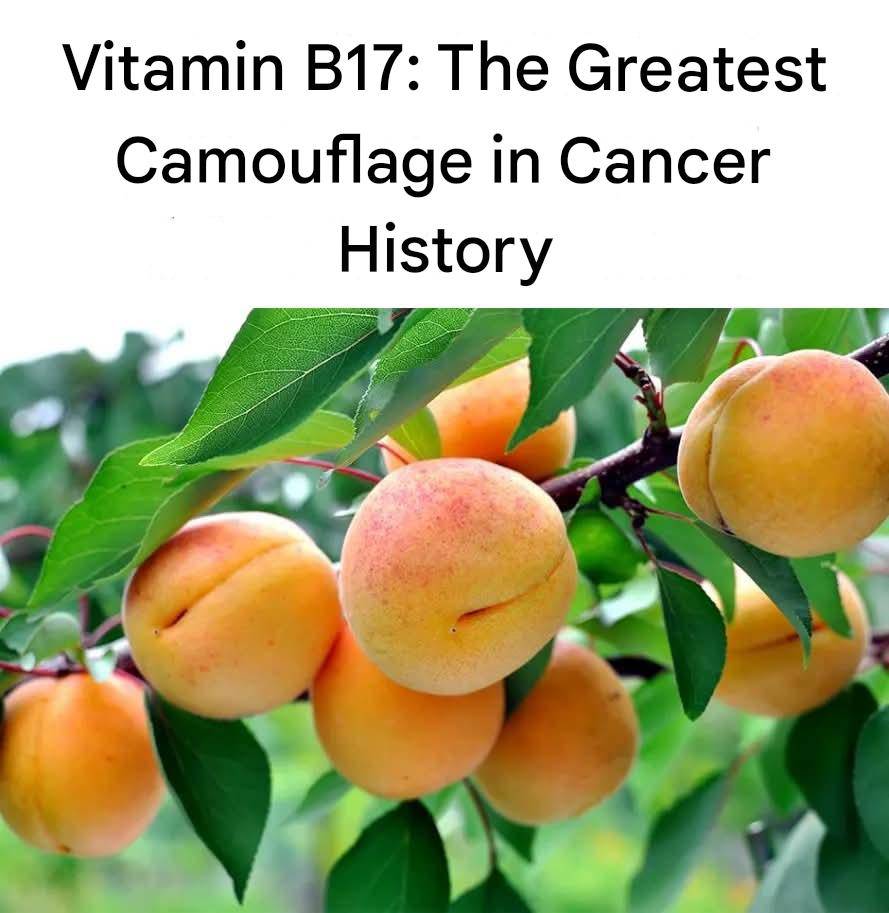Vitamin B17: The Greatest Cover-Up in Cancer History
For decades, whispers have circulated about a powerful compound said to hold the key to preventing — even fighting — cancer. It’s been called Vitamin B17, and for many, it represents one of the most controversial topics in the world of natural health.
Some call it the greatest cover-up in cancer history. Others dismiss it as a myth. But what’s the truth behind Vitamin B17 — and why has it sparked such a heated debate among scientists, doctors, and natural health advocates?
What Exactly Is Vitamin B17?
Despite its name, Vitamin B17 isn’t officially classified as a vitamin. Its scientific name is amygdalin, a naturally occurring compound found in the seeds of certain fruits — particularly apricot kernels, bitter almonds, and apple seeds.
When ingested, amygdalin breaks down into hydrogen cyanide, benzaldehyde, and glucose. This reaction is at the heart of its controversy — and its claim to anti-cancer properties.
The Origins: From Discovery to Dispute
Amygdalin was first isolated in the 1830s, but it wasn’t until the 1950s that it gained fame under the name Laetrile, a purified form promoted as an alternative cancer therapy.
In the 1970s, Laetrile became a global sensation, hailed by some as a “natural cancer cure” suppressed by pharmaceutical interests. Supporters claimed it targeted cancer cells selectively, while critics — including major medical organizations — warned that it was ineffective and potentially toxic.
The Science and the Controversy
Research on Vitamin B17 has been mixed. Some early laboratory studies showed that amygdalin could kill certain cancer cells under specific conditions. However, clinical studies in humans did not find consistent evidence of benefit, and cases of cyanide poisoning were reported when large doses were taken.
Mainstream medicine considers Vitamin B17 unproven and potentially dangerous, but natural health practitioners argue that the compound has been unfairly dismissed — possibly due to pharmaceutical competition or the difficulty of patenting a natural substance.
The truth? The evidence remains inconclusive.
The “Cover-Up” Theory
Supporters of Vitamin B17 claim that powerful industries have suppressed information about its potential benefits. They argue that a natural, inexpensive compound that might reduce cancer risk could threaten a multibillion-dollar cancer treatment industry.
While these claims are difficult to verify, they highlight a broader issue: the tension between natural medicine and modern pharmaceutical research.
Vitamin B17 in Nutritional Context
Even if amygdalin isn’t a cure, many nutritionists agree that the foods naturally containing it — like apricot kernels, bitter almonds, and certain berries — are nutrient-dense and beneficial in moderation.
These foods contain antioxidants, vitamins, and compounds that support overall health and immune function.
However, it’s important to remember: high doses of amygdalin can release cyanide, which is toxic. Moderation and professional guidance are essential.
What You Should Know Before Supplementing

